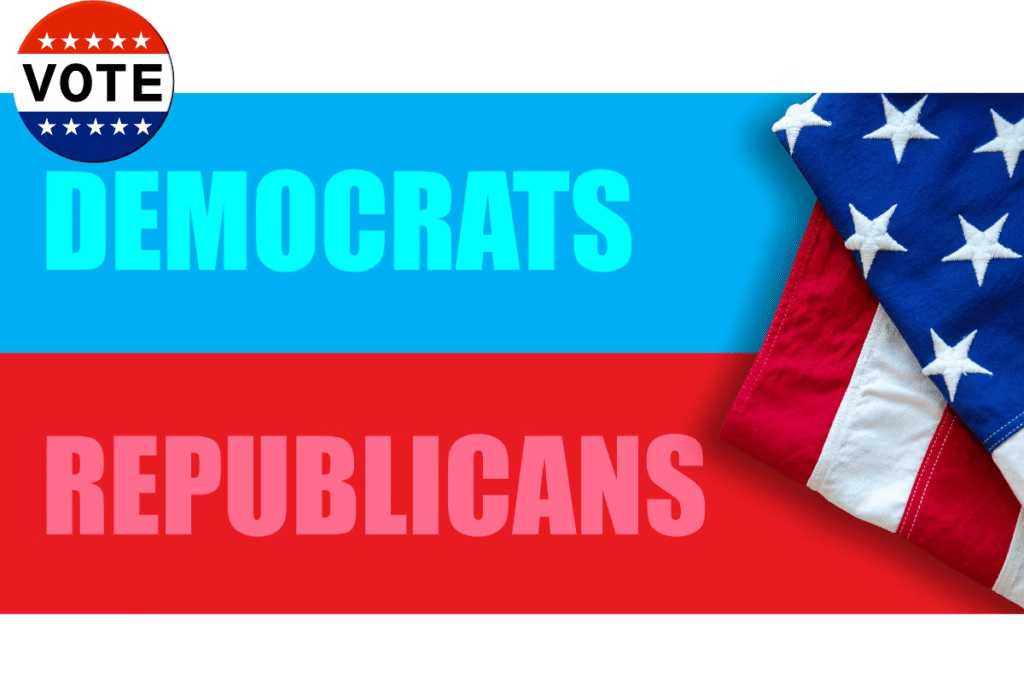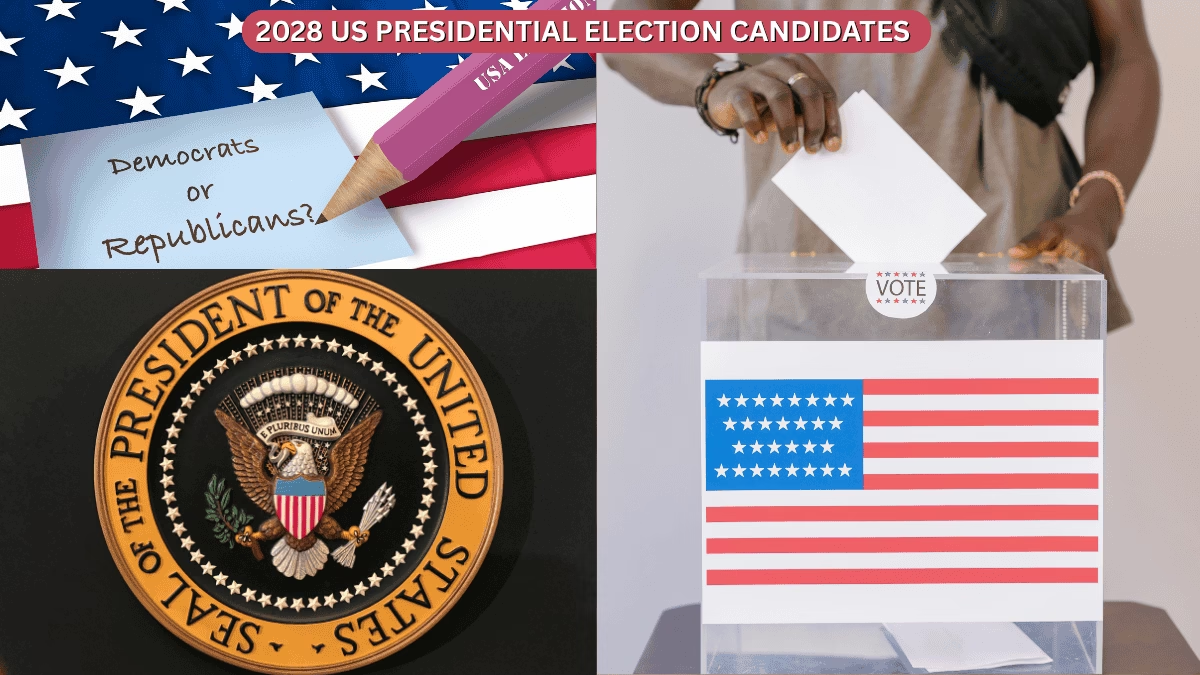Introduction: Why the 2028 US Presidential Election Matters
The 2028 US presidential election is set to be one of the most transformative political events in America’s history. Scheduled for November 7, 2028, this election will not only decide the next President and Vice President but also influence the future trajectory of both domestic and international policy. Early moves by leading figures from both the Democratic and Republican parties are already fueling speculation, debates, and intense public interest.
The 2028 US presidential election is not just about who will sit in the White House for the next four years; it represents a fundamental moment for America’s democracy. Voters across the country are increasingly aware that this election could set the tone for key policy decisions on climate change, the economy, healthcare, and international relations for years to come. The worldwide community is also watching closely, as the outcome of this election could influence global stability and partnerships.
ALSO READ : Did Helen Keller Fly a Plane? Uncovering the Truth About Her Incredible Flight
Who Are the Top Candidates for the 2028 US Presidential Election?

Democratic Party Hopefuls
A diverse group of Democratic leaders are under the spotlight as potential nominees for 2028:
- Kamala Harris: Former Vice President and 2024 presidential nominee, highly influential in party circles.
- Gavin Newsom: The Governor of California, seen as a bridge between progressives and moderates.
- Ruben Gallego: US Senator from Arizona, reflects Latino and Southwestern priorities.
- Alexandria Ocasio-Cortez: Representative with a strong following among young and diverse voters.
- Jasmine Crockett, Ro Khanna, Gina Raimondo: Rising stars gaining attention for their leadership and policy innovation.
The Democrats are presenting a broad slate of potential nominees, each with their own unique appeal and policy focus. Kamala Harris, having served as Vice President and a 2024 nominee, carries significant experience and has built a strong national profile. Gavin Newsom, known for his gubernatorial leadership in California, is positioned as a moderate progressive, appealing to a wide set of voters. Ruben Gallego brings a focus on Latino communities and southwestern issues, which might help sway key battleground states. Alexandria Ocasio-Cortez is popular among younger voters and progressives, advocating for bold reforms. The emergence of rising stars like Jasmine Crockett, Ro Khanna, and Gina Raimondo signals a party in transition, prioritizing innovation and inclusivity.
Republican Party Contenders
Several Republicans are preparing to shape the national conversation:
- Eric Trump: Businessman; represents a potential continuation of the Trump political brand.
- Greg Abbott: Texas Governor with robust support among conservatives and a strong record on immigration.
- Marco Rubio: Former Senator and Secretary of State, considered for his foreign policy experience.
- Sarah Huckabee Sanders, Tim Scott: Other leading figures known for strong grassroots appeal.
- Tucker Carlson, Tulsi Gabbard, Steve Bannon: Media personalities and former officials who could energize the Republican base.
On the Republican side, a mix of established politicians and media figures are shaping the field. Eric Trump, building on the legacy of his father, could energize the base seeking continuity. Greg Abbott’s governance in Texas gives him credibility on immigration and conservative issues. Marco Rubio offers experience in foreign policy and a business-minded approach. Sarah Huckabee Sanders and Tim Scott have grassroots appeal that resonates with core Republican voters. Additionally, figures like Tucker Carlson, Tulsi Gabbard, and Steve Bannon indicate the potential for an unconventional campaign style that could disrupt traditional GOP politics.
Key Issues Shaping the 2028 Election
- Economy & Jobs: Voters are concerned about inflation, job creation, and economic stability.
- Immigration: Candidates’ stances on immigration reform and border security may tip the scales in battleground states.
- Climate Change: Policy solutions addressing climate and energy are front and center for younger voters.
- Health Care & Technology: Modernizing the healthcare system and addressing AI’s impact on jobs are vital topics.
The economy remains a top priority for voters entering the 2028 election. Inflation rates, job growth, wage stagnation, and the impact of automation and AI on employment are critical concerns. Candidates on both sides are expected to paint contrasting visions for economic recovery and growth.
What Makes the 2028 Election Unique?
The 2028 US presidential election stands out due to:
- A new generation of leaders: Both established figures and emerging voices are entering the national stage.
- Shifting party coalitions: Evolving bases in both parties, with new alliances across demographics.
- Tech-driven campaigns: Greater emphasis on social media, AI-driven outreach, and targeted messaging.
With climate change impacts becoming more tangible, the 2028 election could pivot around candidates’ commitments to sustainable energy and environmental protection. Younger voters are demanding decisive action on climate policy, influencing campaign platforms.
Health and Technology: Future Challenges
Healthcare access, affordability, and reform continue to be heated topics. The rapid advancement of technology, including artificial intelligence, raises questions about worker displacement and ethical governance. Candidates’ positions on healthcare innovation and tech regulation may become pivotal for many voters.
The Role of Media and Digital Engagement
The 2028 election is expected to leverage new tech platforms and AI-powered tools to reach voters. Social media strategies, misinformation control, and digital campaign tactics will be critical. The influence of media personalities running or endorsing candidates could shape voter perceptions and turnout.
Voter Mobilization and Participation
Mobilizing young voters, minorities, and traditionally underrepresented groups could be key determinants of success. Efforts to combat voter suppression and increase accessibility through mail-in ballots and early voting options continue to be central to the election conversation.
How to Stay Informed and Prepare to Vote
- Follow reputable news sources and official campaign statements to get accurate information.
- Participate in town halls and virtual forums to hear directly from the candidates.
- Register to vote early and verify your polling location as election day approaches.
Conclusion: The Road to 2028
With America at a pivotal crossroads, the 2028 US presidential election will reflect the country’s values, priorities, and vision for the future. As the campaign unfolds, staying informed and engaged is more crucial than ever.
Disclaimer
The information provided in this blog reflects available knowledge as of mid-2025 and is intended for informational purposes only. Candidate statuses, party dynamics, and key issues may change as new developments occur. Readers are encouraged to consult official sources and trusted news outlets for the most current updates.
Thanks for Reading!
Thank you for taking the time to read this detailed guide on the 2028 US presidential election. Stay informed, stay engaged, and don’t forget to exercise your right to vote when the time comes. Your participation shapes the future of the nation. Email : blogxstory@gmail.com

